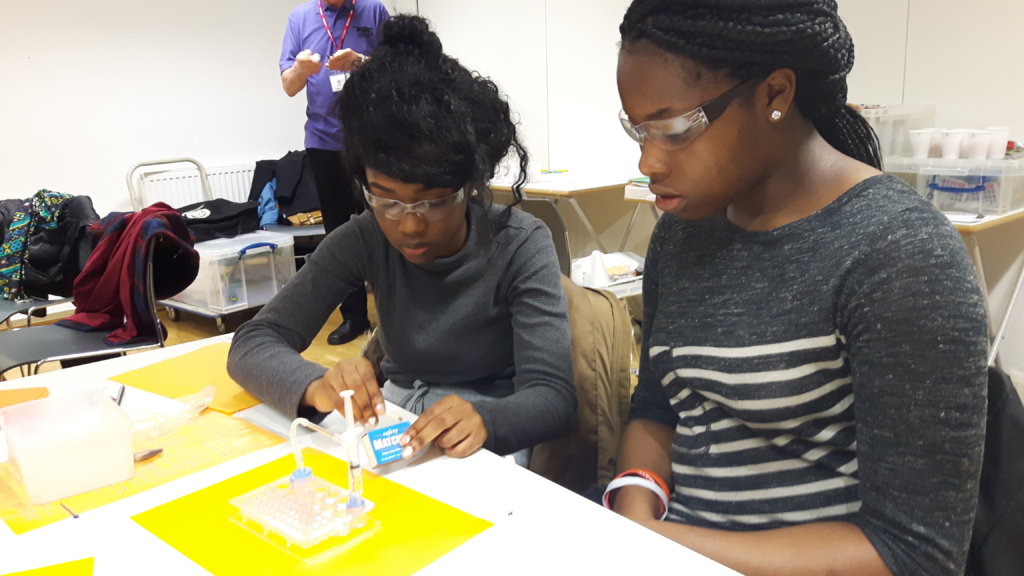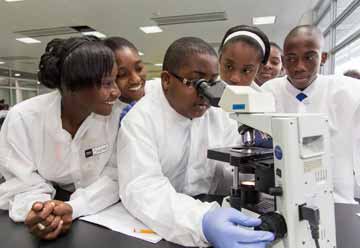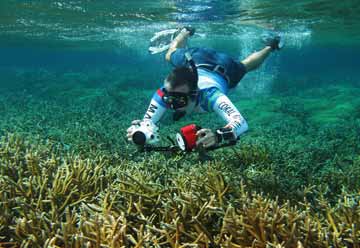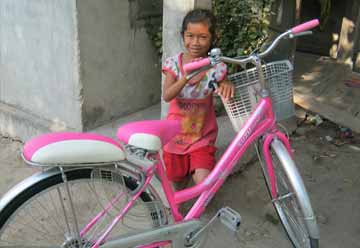![Students working on their mission to Mars]()
Students working on their mission to Mars
TARGET: SENDING MORE MISSIONS ACROSS THE WORLD
Flashback to 60 years ago, when the two mega powers USA and Russia were competing to land on the moon. It was a race of time, of who had the most resources and the brightest minds. Who ever won this race, had shown the world that they are the most powerful nation on earth. Now, there are more players contesting for the next big challenge: getting humans to Mars.
The missions to Mars have to be timed right, as scientists take advantage of the alignment of planets, waiting for the time when the distance between the two planets decreased to the closest journey. The term ‘close’ in this context, is a relative one, the closest Mars can ever be to Earth is 54.6 million kilometers. NASA, still one of the major players, has now announced its plans to reach Mars by 2030. There have been some spectacular developments over the last couple of years and even private people with huge budgets have entered the race to be there first!
Our students had the chance to experience the rush and complications of both the preparation and the landing on Mars with Thinkers in Education. Matt and his team design a day filled with activities which use virtually every aspect of STEM to ensure their success. It was all about teamwork; 5 teams representing 5 nations that are fighting to be the first to arrive and ‘claim’ Mars: Russia, China, Europe and the US.
The teams had to determine whether there was water on Mars, if it is in fact habitable, how they would approach bringing equipment to Mars, how to land and savely build it. Using a cross section of skills teams had to show quick thinking, teamwork and analytical skills.
Thinkers in Education run ‘Mission to Mars’ around the world with other Year 10 groups. We are proud to say that the Generating Genius group broke the world record for team work, quick thinking and safe landing out of hundreds of schools who had participated in this programme all over the world.
The race is on to colonise Mars! You will need to cooperate to ensure success but only one team can claim final glory! During this event you will organise the Mission to Mars; You will conduct scientific experiments and get to understand real techniques used in Aerospace research and engineering.
Our Junior Genius cohort have been getting to know each other more throughout the beginning of the year especially during this February half term where they had the chance to interact and bond as a group.
Generating Genius
Nearly a decade ago, Generating Genius was founded , an innovatory programme to identify and nurture STEM talent among disadvantaged school students. Through its two programmes, Junior Genius for those aged 11 to 16, and Uni Genius, for sixth-formers, it has grown into a highly successful intervention, building leadership, resilience and self-confidence alongside academic success.
Generating Genius was the first programme of its type, and – uniquely – it provides a sustained programme of support across the whole secondary school career. This is no ‘quick fix’.
Generating Genius has now grown into a major programme which has inspired and supported hundreds of young people to pursue STEM-subject degrees at university and STEM careers afterwards. Our bespoke academic tutoring programme, provided by STEM undergraduates and postgraduates, has made a major contribution to closing the gap in subject knowledge between young people from disadvantaged backgrounds and their more privileged peers.
As the UK struggles to produce young people with the high-level specialist skills needed for the years ahead, Generating Genius has made a major contribution to creating a STEM talent pipeline for young people from non-traditional backgrounds.
The Mission to mars concept has now led to us creating our Science manual, which we can distribute to schools
Junior Genius. Year 9 to year 11
We are still planning the project and we haven’t yet assigned the PhD students. We no longer want an ad hoc curriculum with a set of one offs: New students Junior Genius must be prepared to undertake the range of sciences
They are taught by academic mentors: PhD students in 5 areas: 1 Engineering, 2 Computer Science 3 Bio-sciences, 4 Mathematics/ Physics, 5 Applied chemistry
They will also be taught leadership mentoring : , soft- skills from independent schools including debating skills
Output
- presentation in front of real experts / debates
- Teaching manual
- Improved leadership and soft skills
- Interaction with Independent schools
- Video of best debates put forward for national competition
- Group work – International coding
Opportunities to scale – up programme
An example of how we would operationalise a Junior Genius project in the new framework:
Using Chemistry to save the world: Generating Genius debate
As ideas have developed to address the Global Grand Challenges some developments are now changing the way the chemical industry is interacting with Society. The biggest recent tension has been plastics and the environment. Too much of the debate has been on an ‘emotional’ level. Generating Genius can see an educational positive. Why don’t we use science and in particular Chemistry on two levels:
1 To seriously debate the science facts and debunk some of the myths around for example Plastics and the environment
2 Can we find Chemical solutions to environmental problems, in other words can Chemistry be the good guy/girl in saving the world.
In order to achieve these two objectives we need students to understand the positives and challenges facing the Chemical industry. We need to see how the Chemical industry can add value and we need to understand its real shortcomings.
Using science to inform debate? (Averil Macdonald)
Can we live without plastic? After a brief overview of the great variety of physical properties of plastics that make them suitable for various intriguing and surprising applications, students are reminded of the basic concepts of solid, liquids and gases. From there, students are introduced to the idea of polymers consisting of long chain molecules. Polymers can exist as solid and liquids but often have properties of both (as in slime). Lively demonstrations show the effects of increasing the temperature, crosslinking the molecules, "tangling up" the polymer chains, and dissolving them in liquids. Some examples are given to show how by controlling what happens at the molecular level, the characteristics of the final material are determined. This leads to the development of some great products which we might not want to let go.
Therefore Generating Genius would like to encourage a wider interest from students from disadvantaged backgrounds. This would result in a number of key outcomes:
1 Increased subject knowledge about Chemistry
2 Wider understanding of the Chemical industry
3 Developed debating skills
4 Passion to study chemistry at a higher level
5 Scale the methodology of Generating Genius across the country using a digital framework.
We want to develop a tool that teachers can use – which has the framework to run an informed school debate on: Can Chemistry save the world? Schools then send us back their you-tube debates on this subject. This would be a link from our website where teachers can download resources
We need funding to do two things:
1, Test our model with the Generating Genius students.
2, Develop a debating resource for teachers
3 Run a video completion for the best school debate
The winning school get a chance to come to London to display their debate and they get Chemistry related prizes.
What we have is nice. We might like to look at Worshipful Company of Horners as part funders along with British Plastics Federation (BPF) and Plastics Europe if you’re more ambitious.
-
- My reservations hinge on the time required for schools to produce their videos. Do your schools have time/resource to do this? I’ve seen many cases of students being excluded from STEM stuff due to resource / time limitations.
- Conversely I wonder if there’s mileage in hooking this into Teentech’s award scheme. They are currently expanding their awards to age 16-19. Your students or teams would submit their project (15 pages of written submission) for judging against criteria including innovation and their main aim is ‘changing the world’. The stage 1 winners present at Royal Society with a number of celebs judging e.g. Brian Cox, James May. The overall winners of each category go to Buckingham Palace for the presentation.
Uni - Genius
This is year 12 and 13 students mainly from BME backgrounds. We use PhD students from related Universities to help us develop the content and delivery. They are taught by academic mentors: PhD students in 5 areas: 1 Engineering, 2 Computer Science 3 Bio-sciences, 4 Mathematics/ Physics, 5 Applied chemistry
Outcomes:
- Academic poster/ paper
- Presentation in front of real experts / debates/soft skills with Corporations
- Related work experience/
- Attend high level University based lectures/ STEM in Action days
- Link to EPQ
- Ucas prep
We need funding to develop the manual and scale this into schools across the Uk. We are initially seeking £5,000.00. Every little helps. Please give .
![Share on Twitter]()
![Share on Facebook]()










